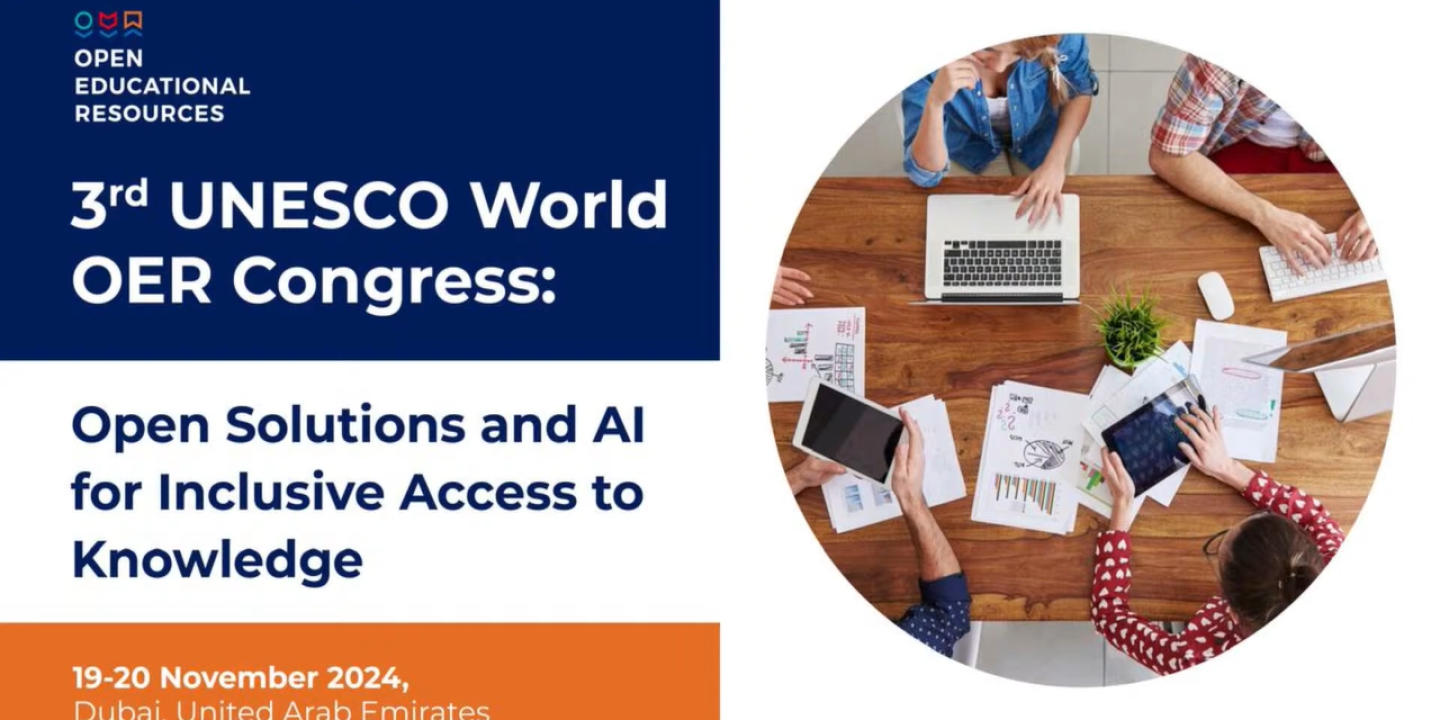The 3rd UNESCO World Open Educational Resources (OER) Congress “Digital Public Goods: Open Solutions and AI for Inclusive Access to Knowledge,” will take place between 19 to 20 November 2024, at the Dubai World Trade Centre, Dubai, United Arab Emirates. This key global event is organized by the United Nations Educational, Scientific and Cultural Organization (UNESCO) and is hosted by the Mohammed Bin Rashid Knowledge Foundation (MBRF)
The Congress will bring together policymakers, educators, and innovators from around the world to explore the transformative potential of Open Educational Resources (OER) in advancing equitable access to knowledge.
Empowering Access through Open Solutions
The Congress will highlight how OER can be leveraged to foster global digital cooperation following the UNESCO 2019 Recommendation on OER. Participants are expected to engage in in-depth discussions on best practices and innovations in OER and explore strategies for scaling its impact. A central theme of the discussions will be on collaborative mechanisms to expand access to OER.
A Vision for the Future of Inclusive Learning
The Congress will release guidelines to advance openly licensed content and address challenges posed by AI and other emerging technologies. The discussions will culminate in the Dubai Declaration for Action on OER, setting forth actionable steps to promote inclusive and equitable quality education.
Success Stories
Several countries have made significant strides in implementing UNESCO's OER recommendations, with their initiatives to be discussed further at the Congress:
- Cuba: The Virtual Health University provides flexible, accessible OER-based healthcare education for working professionals, even in remote areas.
- Madagascar: By utilizing OER during COVID-19, Madagascar launched an e-learning platform, distributed tablets, and used radio broadcasts to bridge digital divides in primary education.
- Malaysia: Its national Inclusive OER Policy ensures accessible resources for all, with government support for educator training and tech investment.
- Morocco: The country’s 2024 national strategy for OER and Open Science focuses on modernizing education and research accessibility, with strong educator participation.
Contact
For more information, please contact UNESCO at n.helou@unesco.org
